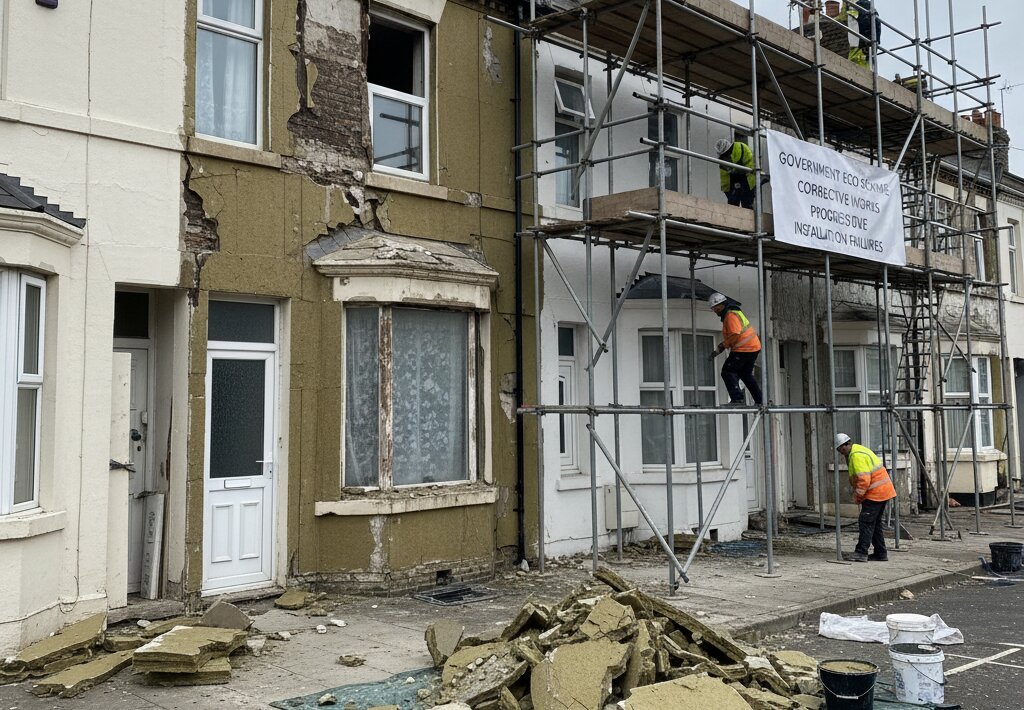Almost every home fitted with external wall insulation under the government’s flagship Energy Company Obligation (ECO) scheme requires corrective work after widespread installation failures, according to a damning new report by the National Audit Office (NAO).
The watchdog found that 98% of homes inspected under the ECO scheme – designed to cut carbon emissions and tackle fuel poverty – suffered from major issues likely to cause damp, mould or structural damage.
The findings point to systemic failings in quality assurance, weak government oversight and confused lines of accountability between the Department for Energy Security and Net Zero (DESNZ) and Ofgem.
The ECO4 programme requires large energy companies to install insulation and other energy-saving measures in households, particularly for low-income or vulnerable residents. It is funded through consumer energy bills and operates alongside the Great British Insulation Scheme (GBIS), which offers similar measures to a wider group of households.
POOR AUDIT AND MONITORING
According to the NAO, both schemes were undermined by poor audit and monitoring processes and a complex, fragmented consumer protection regime.
In some cases, installations were found to have insufficient ventilation or missing insulation, creating conditions ripe for damp and mould. Other problems included exposed materials and incomplete documentation.
In January, DESNZ acknowledged “quality issues” in a number of projects after TrustMark – the not-for-profit body overseeing installation standards – raised concerns over solid wall insulation. The department has since suspended 38 installation firms, expanded compliance checks and introduced a remediation plan.
GRIM READING

Anna Moore, co-founder and chief executive of retrofit specialist Domna, says the report “makes for grim reading” and revealed longstanding structural problems in the delivery of government energy schemes.
She adds: “Energy efficiency upgrades to our housing stock are essential but have typically been marred by poor oversight and an inability to effectively deliver earmarked funds.
“It’s a problem that goes much further than the Energy Company Obligation scheme – the contractors delivering ECO are the same firms now delivering Warm Homes.”
MORE RED TAPE
Moore says the government’s approach has “added red tape and slowed delivery without fixing quality problems”, noting that £280 million of the £1.9 billion Social Housing Decarbonisation Fund Wave 2.1 has already been spent on administration, while “just 27% of planned installs” have been completed.
She adds that effective site-based inspections and stricter enforcement of existing PAS2035 standards would “raise quality and cut waste” in future schemes.










